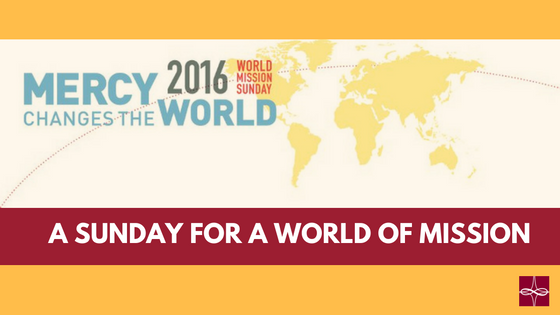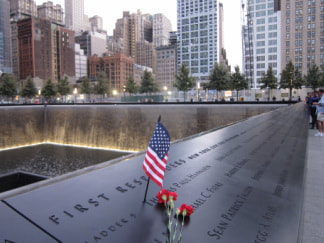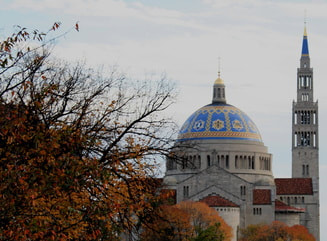|
Can you imagine yourself as one of the apostles? Put yourself in their shoes. You were moved by Jesus. His teachings spoke to your heart. When you were with him, you felt incredibly alive, free, loved and full of hope. No one persuaded you; you wanted to follow him. You were there when Jesus fed the 5,000, gave sight to the blind, and raised a young man from the dead. He received a royal welcome into Jerusalem. You celebrated Passover with him. You were also there when the soldiers came and dragged Jesus off to be crucified. Scared for your own life, you hid in the shadows abandoning him to death on the cross. You were a puddle of fear, sadness, anger, and despair. You disgust yourself. Disoriented, you stumble upon the others. You look to Peter but that rock is crushed, broken by grief and disbelief. The Sabbath comes and goes. It’s over—time to pick up the pieces of your life and move on. But just as you begin to leave, two female disciples arrive with astonishing news. Jesus is alive! Remember the mountain in Galilee? Remember what he said? Go there and you will see him. Of course, you go. You gather with the other disciples and make arrangements for the journey. It will take four days. Along the way, you cry, confess, and tell stories. You see the mountain in the distance. A lone person is descending from the top. Before you know it, Jesus is approaching you. You are gaping-mouth-open astonished. Some fall down to worship him. Others cannot believe it. Peter collapses to his knees. And still, Jesus approaches. He embraces you. You are alive again. Jesus reaches out to everyone. He turns to Peter last, lifting him up, restoring his strength. Jesus calls you together. "All power in heaven and on earth has been given to me. Go, therefore, and make disciples of all nations, baptizing them in the name of the Father, and of the Son, and of the Holy Spirit." He pauses here, letting his eyes meet each one of us. Some of us are giddy with joy, others cannot stop the tears. "Teaching them to observe all that I have commanded you." Suddenly, your heart begins to burn within you. You have a lot to say, a lot to share, a lot to tell. You remember with crystal clarity everything he taught, every moment he was with you, all the experiences you shared. You know now who you are and what you are about. It is time to go. But you hesitate. You want to stay. Jesus knows your heart. He is speaking again. Amazingly, he is talking to everyone and only you at the same time. "Behold, I am with you always, until the end of the age." Stay here. Stay with Jesus resting his eyes in yours. You have a lot to offer. You know who you are, what the Lord means to you, what he asks of you, and what he has given you. The stark truth of mission is hard to believe. God sends you into the world because there is something the world needs that only you can give. World Mission Sunday reminds us that we are sent to the whole world. As disciples of Jesus, there is no place or people beyond our sphere of concern. Pope Francis reminds us that mission is an "immense work of mercy, both spiritual and material." Last year, many of us “walked with Francis.” This year, let us be with Pope Francis in the mission of mercy. Let us renew our call to mission - to care about everyone, everywhere. I offer three suggestions on how to renew the call to mission:
Jesus is sending us out to all nations and he will be with us always. We will be astonished at how the Lord will reveal himself to us through mission. It is time to go.
0 Comments
 Today we celebrate the memorial of Saint Mary Magdalene. Many of us probably remember Mary Magdalene as one of the women who remained at the feet of Jesus throughout his suffering and death on the cross. Or, we might remember her as the first person to witness his Resurrection. Both roles are very important to consider as we examine the readings from today and their importance in recognizing God’s presence in our lives. Today’s Gospel from John focuses on Mary Magdalene’s visit to the tomb of Jesus. She arrives, finds it empty, and weeps. When confronted by Jesus, she can only say, “Sir, if you carried him away, tell me where you laid him, and I will take him.” Mary Magdalene is blinded by her grief, her own human failings, because in that moment, she believed her struggles were greater than God himself. She has forgotten Christ’s promise that he will rebuild this temple in three days (Cf, Jn 2:19). She, who sat at the feet of Jesus as he suffered on the cross, does not recognize that Christ is standing in front of her. We often go through life like Mary Magdalene, blinded by our everyday fears and hardships, but her life and her actions give us an example to follow. Though blinded by her own human failings, she learned to have faith and trust in the constant presence of the mercy and love of Christ. Christ says to her, “But go to my brothers and tell them, ‘I am going to my Father and your Father, to my God and your God.” With these words Christ proves to Mary Magdalene and to us that by his death and resurrection he has given mankind the ability to develop a personal relationship with God. Even after his death, he is calling Mary Magdalene and the disciples to more, to recognize that through his suffering on the cross he has transcended death and opened the gates of heaven to us. He calls us to renew our faith in him, “to my Father and your Father, to my God and your God.” He calls us into his arms, to know him, to love him, and serve him. This Gospel scene with Mary Magdalene reminds us that we are often blind to Christ’s presence in our lives. We sometimes forget just how significant his death on the cross actually was, we forget that he laid down his life so that we could overcome our daily struggle with sin and that we might one day be one with the Lord in heaven. This is a hard message to remember especially in these recent months in which a plane carrying 295 innocent people was shot down and people are being killed all around the world in the Ukraine, Israel, and Africa. Many of us feel lost and unable to help against this senseless violence and yet Mary Magdalene gives us the answer. That answer is Christ. He is always here for us. He is always present. We might not be able to see him at all times, for we are often blinded by our human failings, our pride, and our worldly desires, and yet Christ remains present to us. We have, like Mary Magdalene, to just open our eyes and trust in the Lord. We have to offer ourselves up as he did in the only way we know how, in imitating the life of Christ every day, first and foremost through prayer. By answering his call to know him, to love him, and to serve him we give ourselves completely to him just as Mary Magdalene did. St. Theresa of Avila gives us a simple prayer to remember the continuous presence of Christ in our lives, we but only have to look for him: Let nothing disturb you, let nothing frighten you, all things are passing away: God never changes. Patience obtains all things, whoever has God lacks nothing; God alone suffices. Nicholas Shields is a current District Deputy for the Washington, D.C. Knights of Columbus and a recent graduate of The Catholic University of America.
"The joy of love, the answer to the drama of suffering and pain, the power of forgiveness in the face of an offence received and the victory of life over the emptiness of death" (Porta Fidei, 13)
Death is often something that we do not like to discuss, especially in the context of the New Evangelization. These two concepts might seem like they don’t mix well, but I hope to show how they are. It is quite natural that we try to deflect the topic of death and dying and why we do not want to face the reality of a difficult situation. But, when death comes into our lives we have no control and it is something that we must handle. After the wake and the funeral are over, and the family goes home, the void is sill there. The sense of loss does not want to go away and it seems like we cannot move on from the loss. On March 7th, I went though this pain for the fourth time this past year with the passing of my paternal grandfather and namesake. I lost two grandfathers, a cousin, and a close family friend who I consider more like an uncle. Each of these individuals have greatly impacted my life and I would not be who I am without them. Recently I have done a lot of reflecting on what these lives have meant to me. Time and time again I go back to the number of lessons that my grandfathers' have taught me. They taught me some of the classics like fishing, a love for music and art, gardening and the importance of a good cup of British Tea or Italian coffee. But it was not these lessons that are the most import that matter. These two men also taught me the importance of family, tradition, love, and faith. My maternal grandfather was a great lover of music; he was singer and a violinist. He introduced me to the Masses written by Mozart, Beethoven, and Verdi. Through his love, he showed me how music can represent a love for God and his creation. Music has come to affect my life and how I pray to God. He broadened my horizons and taught me about musical tradition that dated back centuries, and his love for this went far beyond the music itself. It helped one transport oneself to become close with God. My paternal grandfather taught me two different aspects of faith: a devotion to Mary and the importance of service. He suffered from Alzheimer's disease, which caused great pain and eventually an almost complete loss of memory. There were only four things he could remember before he passed away; his brother, his wife (my grandmother), his personal motto, which was “great and grateful no matter what”, and how to pray the Hail Mary. His devotion to the Blessed Mother was a quiet one. His service to others was like his devotion, a quiet one. He was just as happy serving on a board of trustees or picking up trash at the church picnic as long as it helped others. On the night before my paternal grandfather's funeral, one of our parish priests began the prayer vigil. He offered a short reflection on what this meant and there was a part of it that has stuck with me. This young priest said that our relationship with the dead was not over, but rather was changed. The relationship was now through the eternity of Jesus Christ. Our faith teaches us that Christ connects us regardless of time and that life continues after death. The New Evangelization is a reminder of this hope and comfort. Pope Emeritus Benedict got this right in Porta Fidei, it is the joy of love that conquers death and gives us hope. This hope is found in our faith, and fills the void from the loss. While the sting of death will always be present, it is Christ, who walks with us at every step, who takes away the sting and returns our capacity to love one another. Pat Fricchione is the Research and Production Associate for the Catholic Apostolate Center Those are the words that will inevitably come up at some point from anyone who knows that I grew up in New York City. I was in seventh grade, attending my Catholic elementary school in Queens, when my math teacher came in and told us all to “start praying.” I was very confused. This was before the age of iPhones or instant communication – there was confusion, worry, and an overall sense of terror. Eventually when we were told the details, it was followed up by a precautionary statement that we might have to seek shelter in our school’s basement and church hall. I was worried about my mother; she was working in Manhattan that day.
Tomorrow is the twelfth anniversary of that tragic day. I truly believe that everyone who experienced it deals with each anniversary in a different way. Here in Washington, DC, many people visit the Newseum’s 9/11 exhibit while many others around the country watch re-broadcasted news footage from 2001. I always find it interesting how people deal with grief. Those who were lucky enough to not have their families hurt by loss on that day or from a related illness, often times still feel as if they lost someone close to them. Every year, I am drawn back to the words that my math teacher said – the first words of comfort on a day that would be filled with strangers comforting strangers – “start praying.” She didn’t know all the details, we certainly didn’t know all the details, but her instinct in that moment was to encourage us to look to God for comfort. She encouraged us to seek shelter in the arms of the Lord. I prayed that day and I take time to pray every September 11th that passes, to thank God for keeping my family safe and to pray for the thousands of men and women who lost their lives. When Pope Benedict XVI journeyed to the United States on his apostolic visit in 2008, he visited Ground Zero in Manhattan to pray at a place where many Americans come to pray – no matter their faith. Instead of paraphrasing or commenting on his prayer, I leave it here for you to read and contemplate on your own. I will be praying it tomorrow; I would encourage you to do so as well. O God of love, compassion, and healing, look on us, people of many different faiths and traditions, who gather today at this site, the scene of incredible violence and pain. We ask you in your goodness to give eternal light and peace to all who died here— the heroic first-responders: our fire fighters, police officers, emergency service workers, and Port Authority personnel, along with all the innocent men and women who were victims of this tragedy simply because their work or service brought them here on September 11, 2001. We ask you, in your compassion to bring healing to those who, because of their presence here that day, suffer from injuries and illness. Heal, too, the pain of still-grieving families and all who lost loved ones in this tragedy. Give them strength to continue their lives with courage and hope. We are mindful as well of those who suffered death, injury, and loss on the same day at the Pentagon and in Shanksville, Pennsylvania. Our hearts are one with theirs as our prayer embraces their pain and suffering. God of peace, bring your peace to our violent world: peace in the hearts of all men and women and peace among the nations of the earth. Turn to your way of love those whose hearts and minds are consumed with hatred. God of understanding, overwhelmed by the magnitude of this tragedy, we seek your light and guidance as we confront such terrible events. Grant that those whose lives were spared may live so that the lives lost here may not have been lost in vain. Comfort and console us, strengthen us in hope, and give us the wisdom and courage to work tirelessly for a world where true peace and love reign among nations and in the hearts of all. Pope Benedict XVI -- Prayer at Ground Zero New York, New York -- 20 April 2008 Chris Pierno is the Media & Marketing Manager for the Catholic Apostolate Center. As emerging adults in the Catholic Church many times we are asked the question why are you Catholic? or why do you remain Catholic? Sometimes asked from friends who fell away and sometimes asked by others in the Church that are surprised to see you present and active. We, as a Center, would like to share with you, at the end of each month, why we are Catholic and where it is that we find joy in our faith.
“We are an Easter people and ‘Alleluia’ is our song!” -St. Augustine of Hippo I first heard this quote several years ago, but it wasn’t until recently that I began to understand it more fully. Some of you may be wondering why I am writing about Easter in October, but this is exactly my point! We are always an Easter people, and we should constantly direct ourselves towards the joy of the Resurrection! Nothing orients one towards Easter quite like participating in RCIA. This year, for the first time, I am helping to prepare catechumens, candidates, and confirmandi for full initiation into the Church during the Easter Vigil mass. This group is distinct from other RCIA groups because it is composed entirely of college students, both graduate and undergraduate, who are studying at the Catholic University of America in Washington, D.C. Every Thursday night, the ten or twelve students come together to learn about the faith through catechetical sessions presented by a member of the theology faculty or one of the chaplains of the university. Some students come straight from rugby practice, others from study sessions in the library, and a few grad students sacrifice time away from their young families to join us. What brings them all together in the campus ministry lounge on Thursday nights is a nascent love for the Church and a deep desire for the grace imparted through her sacraments. To put it simply, even in October they are oriented towards the joy of Easter. The Second Vatican Council’s Pastoral Constitution on the Church in the Modern World (Gaudium et Spes) opens with the following words: The joys and the hopes, the griefs and the anxieties of the men of this age, especially those who are poor or in any way afflicted, these are the joys and hopes, the griefs and anxieties of the followers of Christ. Indeed, nothing genuinely human fails to raise an echo in their hearts. In the next few days, the Church celebrates not only the joy of “All Saints” and the hope of “All Souls,” but we also share in the sorrow of the families and communities whom the faithful departed have left behind. It is this sense of community that calls others into the fold. As members of the Church we are called to share in the burdens of our fellow man, but we do so with the recognition of what God-made-man has already done for us. However heavy our loads, we have hope in Christ who shouldered all of our burdens and sacrificed himself for our sins. We share the grief of others because Christ has shared in our grief; but we must also share the hope and joy that we have in Him . . . the same hope and joy that brings twelve college students together for an hour each week on a busy school night to reflect upon the beauty of our faith. Where do I find joy? In the catechumens who long for Easter – even in October! – and yearn to become members of our community of faith. Leave it to the neophytes in the faith to teach us something about Christian joy! Easter in October? I’m all for it! Brett Garland is the Program Development Coordinator for the Catholic Apostolate Center. |
Details
Archives
April 2024
Categories
All
|
About |
Media |
© COPYRIGHT 2024 | ALL RIGHTS RESERVED






 RSS Feed
RSS Feed